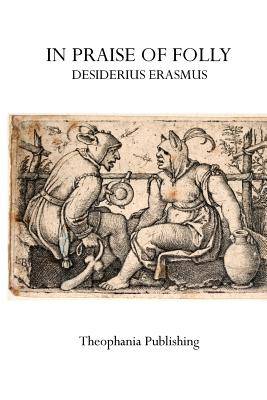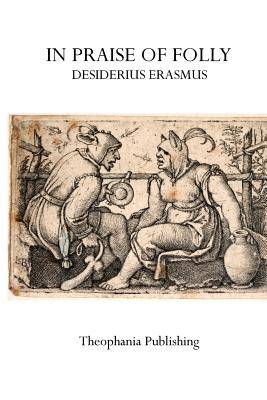
- Afhalen na 1 uur in een winkel met voorraad
- Gratis thuislevering in België vanaf € 30
- Ruim aanbod met 7 miljoen producten
- Afhalen na 1 uur in een winkel met voorraad
- Gratis thuislevering in België vanaf € 30
- Ruim aanbod met 7 miljoen producten
Zoeken
Omschrijving
Thank you for checking out this book by Theophania Publishing. We appreciate your business and look forward to serving you soon. We have thousands of titles available, and we invite you to search for us by name, contact us via our website, or download our most recent catalogues. In Praise of Folly is an essay written in 1509 by Desiderius Erasmus of Rotterdam and first printed in 1511. The essay was inspired by De Triumpho Stultitiae, written by Italian humanist Faustino Perisauli, born at Tredozio, near Forlì.Erasmus revised and extended the work, which he originally wrote in the space of a week while sojourning with Sir Thomas More at More's estate in Bucklersbury. In Praise of Folly is considered one of the most notable works of the Renaissance and one of the catalysts of the Protestant Reformation. It starts off with a satirical learned encomium after the manner of the Greek satirist Lucian, whose work Erasmus and Sir Thomas More had recently translated into Latin, a piece of virtuoso foolery; it then takes a darker tone in a series of orations, as Folly praises self-deception and madness and moves to a satirical examination of pious but superstitious abuses of Catholic doctrine and corrupt practices in parts of the Roman Catholic Church, to which Erasmus was ever faithful, and the folly of pedants (including Erasmus himself). Erasmus had recently returned disappointed from Rome, where he had turned down offers of advancement in the curia, and Folly increasingly takes on Erasmus' own chastising voice. The essay ends with a straightforward statement of Christian ideals. The essay is filled with classical allusions delivered in a style typical of the learned humanists of the Renaissance. Folly parades as a goddess, offspring of Pluto, the god of underworld and a nymph, Freshness. She was nursed by two other nymphs Inebriation and Ignorance, her faithful companions include Philautia (self-love), Kolakia (flattery), Lethe (oblivion), Misoponia (laziness), Hedone (pleasure), Anoia (madness), Tryphe (wantonness)and two gods Komos (intemperance) and Eegretos Hypnos (dead sleep). Folly praises herself endlessly, arguing that life would be dull and distasteful without her. Of earthly existence, Folly pompously states, "you'll find nothing frolic or fortunate that it owes not to me."
Specificaties
Betrokkenen
- Auteur(s):
- Uitgeverij:
Inhoud
- Aantal bladzijden:
- 134
- Taal:
- Engels
Eigenschappen
- Productcode (EAN):
- 9781770831742
- Verschijningsdatum:
- 31/05/2011
- Uitvoering:
- Paperback
- Formaat:
- Trade paperback (VS)
- Afmetingen:
- 152 mm x 229 mm
- Gewicht:
- 190 g

Alleen bij Standaard Boekhandel
+ 58 punten op je klantenkaart van Standaard Boekhandel
Beoordelingen
We publiceren alleen reviews die voldoen aan de voorwaarden voor reviews. Bekijk onze voorwaarden voor reviews.







